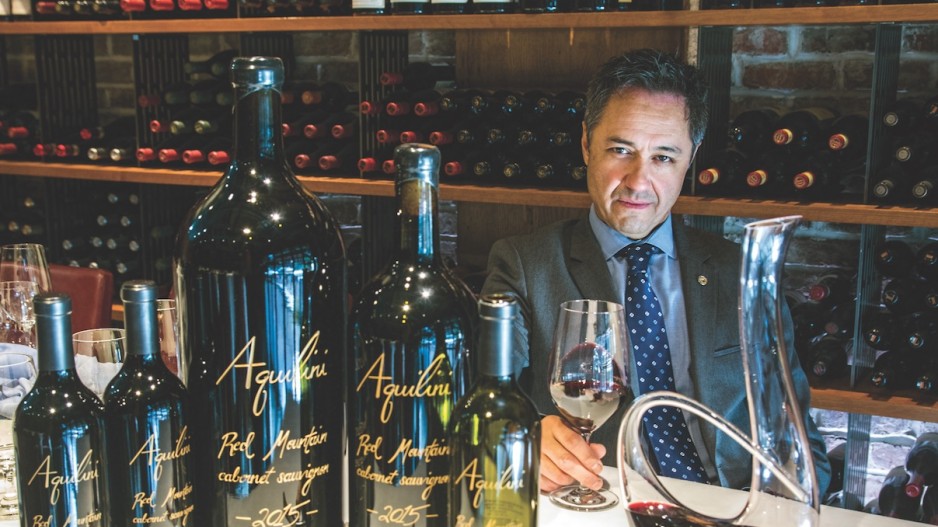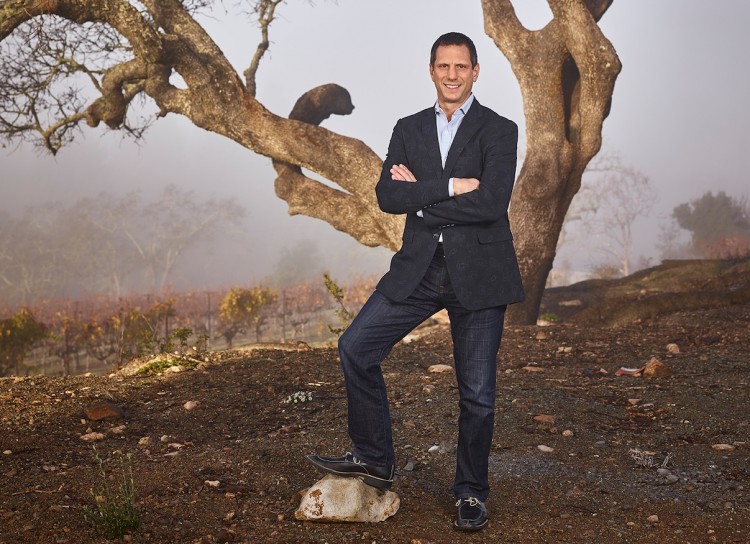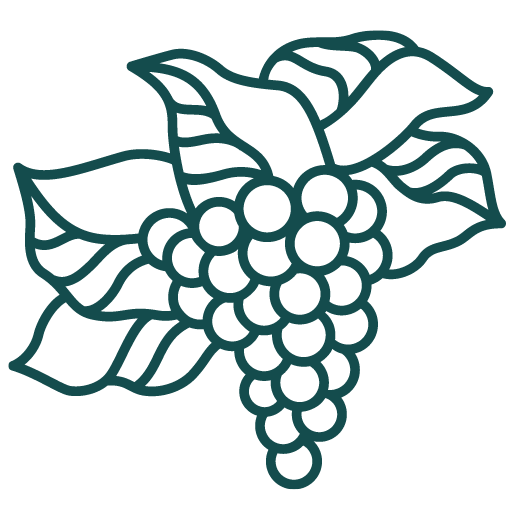
Wine Culture Magazine

Barry Olivier, president of Aquilini Brands USA and Aquilini Brands Canada, is in charge of the parent company’s winery and vineyard holdings, which are in Washington state. Chung Chow photo
Winery owners from around the world will be mingling at the nine-day Vancouver International Wine Festival, which launches February 23 and features California as the theme region – a designation that means that 53 of the expected 160 wineries from 15 countries will be from the Golden State.
Many other wineries at the festival will be from U.S. wine regions in Oregon and Washington state.
With so many wineries from the U.S., there will undoubtedly be conversations centred on the business case for owning a winery south of the border, instead of in B.C.
Some British Columbians who have U.S. wineries, such as the Aquilini family, sought land in the U.S. more than half a decade ago, when the Canadian dollar was hovering at par with the U.S. greenback, and part of the rationale was to diversify assets.
The family’s Aquilini Group in 2013 bought a former gravel pit and 670 acres in Washington state for US$8.3 million at an auction, and then pumped about twice that amount into installing irrigation, building out the winery and vineyards and buying 1,100 additional acres in the state’s Horse Heaven Hills region.
Its Aquilini Red Mountain will be attending the festival this year for the first time.
“We doubled down,” said Barry Olivier, president of Aquilini Brands USA and Aquilini Brands Canada.
Olivier, who ran a wine distribution company before he joined the Aquilini Group in 2010, embarked on a global search for appropriate land for a winery.
He told Business in Vancouver that he looked into potential land acquisitions in B.C., California and places much farther away, such as Tuscany.
“We couldn’t find a deal that made a dollars-and-cents argument work,” Olivier said.
Tony Stewart was another B.C. entrepreneur who, in 2013, wanted to diversify holdings when the Canadian dollar was strong.
Stewart, whose family owns Quails’ Gate Estate Winery, looked at real estate as far away as New Zealand and Australia, but he decided that it made more sense to have a second winery within the same time zone, and at most a few hours’ flight away.
Buying Lake Sonoma Winery provided diversification by country and currency as well as by primary varietals, with Quails’ Gate known mostly for white wine and Lake Sonoma primarily producing reds.
“The [60-acre] property we bought in Sonoma County had so many appealing characteristics,” he said.
One benefit was that, because owners had been making wine from grapes grown on the property since 1863, the property has been grandfathered with a special class of business licence that enables Stewart to operate a kitchen and hold wine-and-food events on the site.
Unlike in the Okanagan, where there is relaxed zoning that allows wineries to open restaurants, wineries in Napa Valley and Sonoma County are not allowed to open on-site kitchens or restaurants.
Ray Signorello, who maintains homes in West Vancouver and the Napa Valley, likes that restriction because he does not want to be pressured to open a restaurant at his Napa Valley winery, or to have the distraction of operating one.

Ray Signorello stands near some of his vineyard land in California. Submitted photo
His Signorello Estate winery is known for its Cabernet Sauvignon wines, which sell for more than $250 per bottle.
“We’re in the wine business, not the restaurant business,” said Signorello, who launched the venture with his father in the mid-1980s.
“Operating a restaurant and operating a winery are two different worlds. If you go to France or Italy, you don’t see restaurants in the wineries. To me, it is all about making great wine. There are a lot of distractions in the world of wine, but when it really comes down to it, the most important thing is to offer the best product you can.”
He produces about 6,000 cases of wine that he brands Signorello Estate. About 20,000 cases of wine are branded Trim, while 15,000 cases of wine are branded Edge and 2,000 cases of wine are branded Fuse. Signorello also owns the Vancouver-based wine-distribution company Evolution Fine Wines.
Some former British Columbians who own California wineries or vineyards are not planning to be at the festival. Absentees include notable business leaders – people such as Cliff Lede Vineyards owner Cliff Lede, who was president of Vancouver-based Ledcor Group of Cos. in the early 2000s before he made the lifestyle-changing decision to buy Napa Valley land and build a winery. Lede did not respond to BIV’s requests for an interview but then when he was president of Ledcor, he rarely spoke with media.
Vancouver Whitecaps co-owner Jeff Mallett owns Corotto Vineyard in the Carneros district of Napa Valley, but he told BIV that all grapes grown in his vineyard are sold to third-party winemakers, and that he is not looking to promote the venture because it does not make its own wine.
Barnett Vineyards co-owner Fiona Barnett, who grew up in Metro Vancouver, will also not be at the festival this year – partly because her winery, which produces about 8,000 cases per year, does not sell much wine in B.C., and partly because of the cost of attending the festival.
Signorello estimated that attending the festival can cost between $10,000 and $15,000 including expenses such as flights, hotels and other costs for winery representatives, as well as for wine poured at events and the US$2,100 extra fee to be part of the theme region contingent.
Barnett moved to San Francisco in the early 1980s to be with her husband, Hal Barnett, and the two went on weekend trips into wine country.
“We fell in love with the area,” she said of the region around St. Helena.
She has visited the Okanagan through the decades and has pleasant memories of the region from summer vacations there when she was a kid.
“I never imagined going up there and [opening a second winery] because we have enough going on here at our winery,” she said. “We live on the property and it’s our full-time business and job. It’s not just a hobby.”
The Vancouver International Wine Festival launched for the first time in 1979. BIV examined the evolution of the festival last year,when it was hosting its 40th extravaganza. •
—By Glen Korstrom, Business in Vancouver

Vitis is is an indispensable seasonal guide for vintners, sommeliers and weekend imbibers alike that is dedicated to British Columbia’s rapidly evolving wine culture.

Vitis is is an indispensable seasonal guide for vintners, sommeliers and weekend imbibers alike that is dedicated to British Columbia’s rapidly evolving wine culture.
© 2024 Vitis Magazine